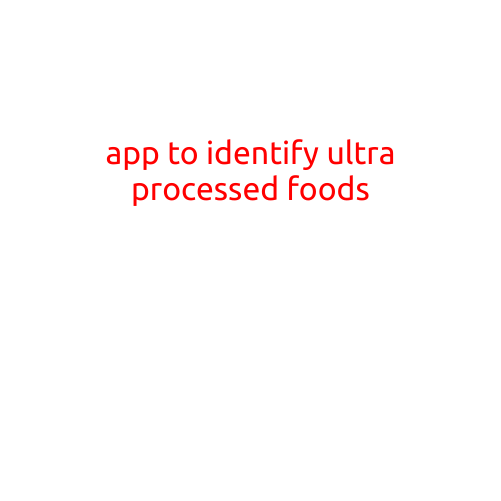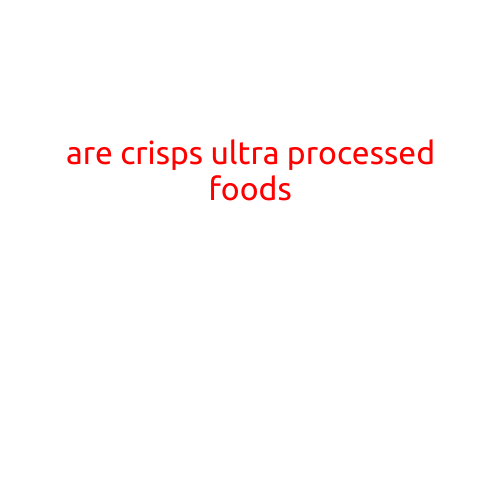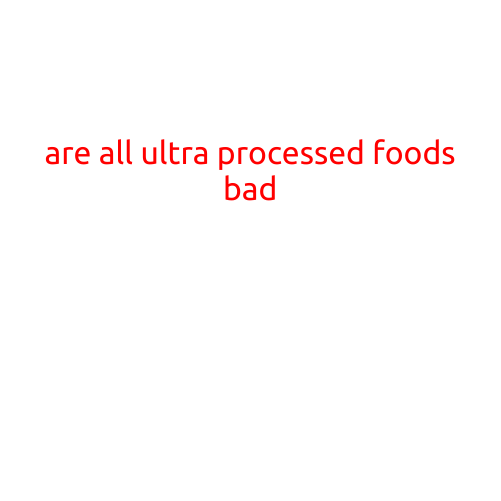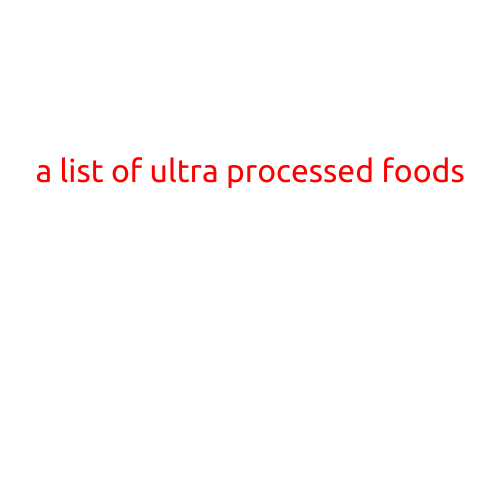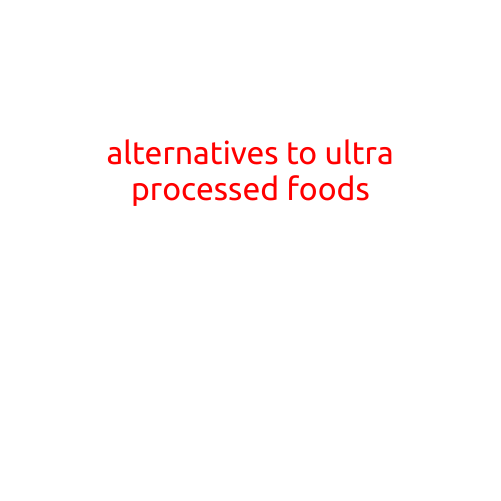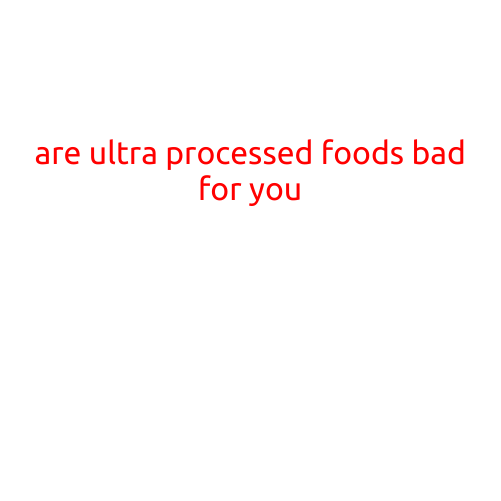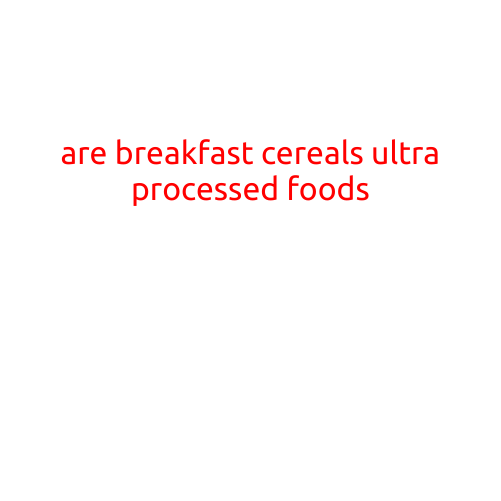
Are Breakfast Cereals Ultra-Processed Foods?
Breakfast cereal is a staple in many households, often served with milk and sugar as a quick and easy way to start the day. However, with the increasing awareness of the negative effects of processed foods on our health, it’s essential to take a closer look at the ingredients and processing methods used in breakfast cereals. Are they ultra-processed foods? Let’s dive into the details.
What are Ultra-Processed Foods?
The term “ultra-processed” was coined by researchers from the University of São Paulo in 2009 to describe foods that are created from a variety of ingredients, including additives, preservatives, and processed ingredients, which are often unknown to the consumer. These foods are manufactured using a combination of various techniques, such as extrusion, emulsification, and encapsulation, and are designed to be easy to consume, store, and transport.
Characteristics of Ultra-Processed Foods
According to the researchers, ultra-processed foods typically exhibit the following characteristics:
- Lack of whole ingredients: Ultra-processed foods are often made from a combination of various ingredients, such as starch, sugar, and vegetable oils, which are not recognized as food by our bodies.
- Presence of additives and preservatives: Ultra-processed foods often contain additives and preservatives to extend shelf life, enhance flavor, and improve texture.
- Unrecognizable foods: Ultra-processed foods are often created from a mixture of different foodstuffs, making it difficult for consumers to identify the ingredients.
- No cooking required: Ultra-processed foods are designed to be consumed directly, without the need for cooking or preparation.
Are Breakfast Cereals Ultra-Processed Foods?
Given these characteristics, it’s likely that many breakfast cereals can be classified as ultra-processed foods. Here are some reasons why:
- Lack of whole ingredients: Commercial breakfast cereals often contain a combination of refined grains, such as corn, wheat, and rice, which are milled and processed to create a uniform texture and flavor.
- Presence of additives and preservatives: Many breakfast cereals contain additives and preservatives to enhance flavor, texture, and shelf life. Examples include artificial flavors, colors, and preservatives like potassium bromate.
- Unrecognizable foods: Breakfast cereals can be created from a mixture of different ingredients, making it difficult for consumers to identify the individual components.
- No cooking required: Breakfast cereals are designed to be served directly, without the need for cooking or preparation.
Examples of Ultra-Processed Breakfast Cereals
Some popular breakfast cereals that may be classified as ultra-processed foods include:
- Cinnamon Toast Crunch
- Froot Loops
- Cheerios
- Corn Flakes
- Rice Krispies
- Cocoa Puffs
Health Risks Associated with Ultra-Processed Foods
Consuming ultra-processed foods, including breakfast cereals, has been linked to various health risks, including:
- Increased risk of obesity and type 2 diabetes
- Higher risk of cardiovascular disease
- Increased risk of certain cancers
- Negative impact on gut health
- Nutrient deficiencies
Conclusion
Breakfast cereals can be classified as ultra-processed foods, given their characteristics and ingredients. While they may be convenient and easy to consume, it’s essential to be aware of the potential health risks associated with their consumption. Consider choosing whole grain, whole food-based breakfast options, such as oatmeal, scrambled eggs, or Greek yogurt, to start your day off on the right foot.
